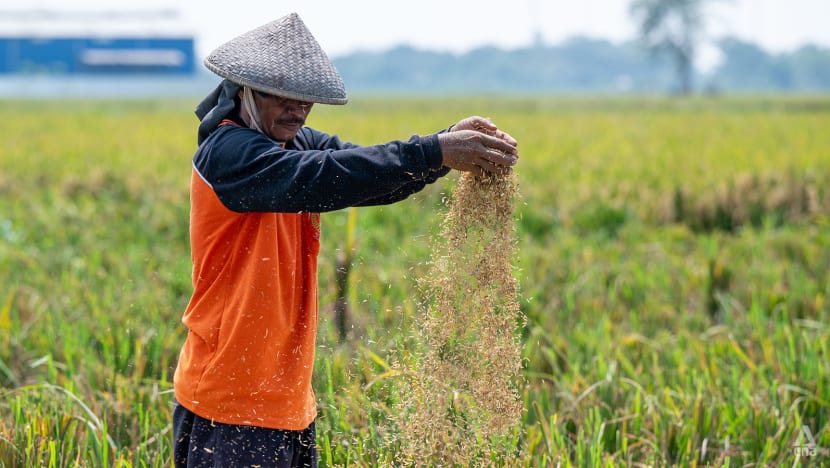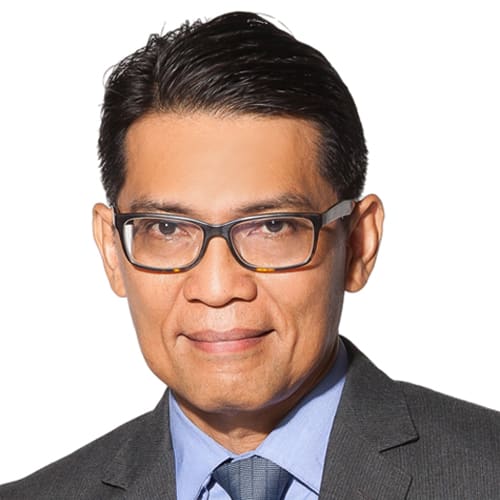Indonesian President Prabowo’s quest for food security faces challenges
Prabowo Subianto’s administration aims to achieve self-sufficiency for staples like rice by 2027 – a year earlier than its initial target.


This audio is generated by an AI tool.
PASURUAN, Indonesia: Food security has become a key agenda for Indonesian President Prabowo Subianto, whose administration aims to achieve self-sufficiency for staples like rice by 2027 – a year earlier than its initial target.
The Southeast Asian nation may even be able to stop importing rice, corn and salt this year, given that it has enough stock to meet demand.
But sustaining its food security efforts could prove difficult due to Indonesia’s ageing farmer population and lack of young successors, according to observers.
“Today's young people generally like to work in offices and factories. Here in Pasuruan, there are many factories, so it's tough,” said Supaat, supervisor of the Nahdlatul Ulama Agricultural Development Institute.
“We want to change (the mindset so people know) that farmers are more important. Even if you have money, if you don't have food, it will be a problem,” added the Indonesian, who goes by one name.
Pasuruan regency is located in East Java, one of the country’s key agricultural provinces. It has more than 1.6 million hectares of paddy fields, and produced over 9.2 million tonnes of rice last year.
The province, which has been the largest rice producer since 2020, accounts for about 17 per cent of the total rice production worldwide.
PASURUAN CAN SERVE AS MODEL
In an exclusive interview with CNA, recently re-elected East Java governor Khofifah Indar Parawansa said the province can serve as a model in efforts to achieve food security in the country.
"How can production per hectare be increased? Production is already good, but how can we convert the use of (chemical) fertiliser to organic fertiliser?” she questioned.
“Maybe initially 50-50 - after that, 80 per cent organic; after that 100 per cent organic. So, not only do we raise production, but it's also healthy.”
East Java aims to increase rice production through land intensification, such as fertiliser management and mechanisation, as it has limited land that can be converted for agriculture.
Heru Suseno, head of the East Java Agricultural Service, said the target is to increase the province’s agricultural area by 2,930 hectares this year.
“If we want to achieve food self-sufficiency as quickly as possible, everything must be done. Land that used to be dormant must be utilised,” he added.
National food security begins with self-sufficiency efforts at the village level.
In Burno village, located in East Java about two hours’ drive from the provincial capital of Surabaya, a national social forestry pilot project began in 2021 where the local community is allowed to use forest areas for agriculture, including rice cultivation.
"Burno's land is fertile and all types of plants are there. So, if this is a country, and if it is blockaded, it will survive because it has achieved food self-sufficiency,” said Lumajang Regional Forest Service Branch head Achmad Achyani.
LONG-TERM APPROACH REQUIRED
But agriculture experts have expressed scepticism about Indonesia's rushed food self-sufficiency plans, emphasising that it requires a long-term approach.
"Unfortunately, to this day, we have not been able to see, find or read documents, scenarios or roadmap prepared by the government (on food self-sufficiency),” noted Ayib Said Abdullah, coordinator of the People's National Coalition for Food Security.
“If the programmes and policies that are made are just to fulfill political promises, for me that is something that is very sad because the stakes concern this nation."
Last month, Prabowo also issued a budget efficiency directive, ordering a 256 trillion rupiah (US$15.76 billion) budget cut for ministries and state agencies.
These cuts are set to slash funding for critical infrastructure projects, including irrigation systems vital for boosting agricultural production.
Farming experts said this move, combined with the challenges posed by climate change, may be the last straw that breaks Indonesia's hopes for food security.

















